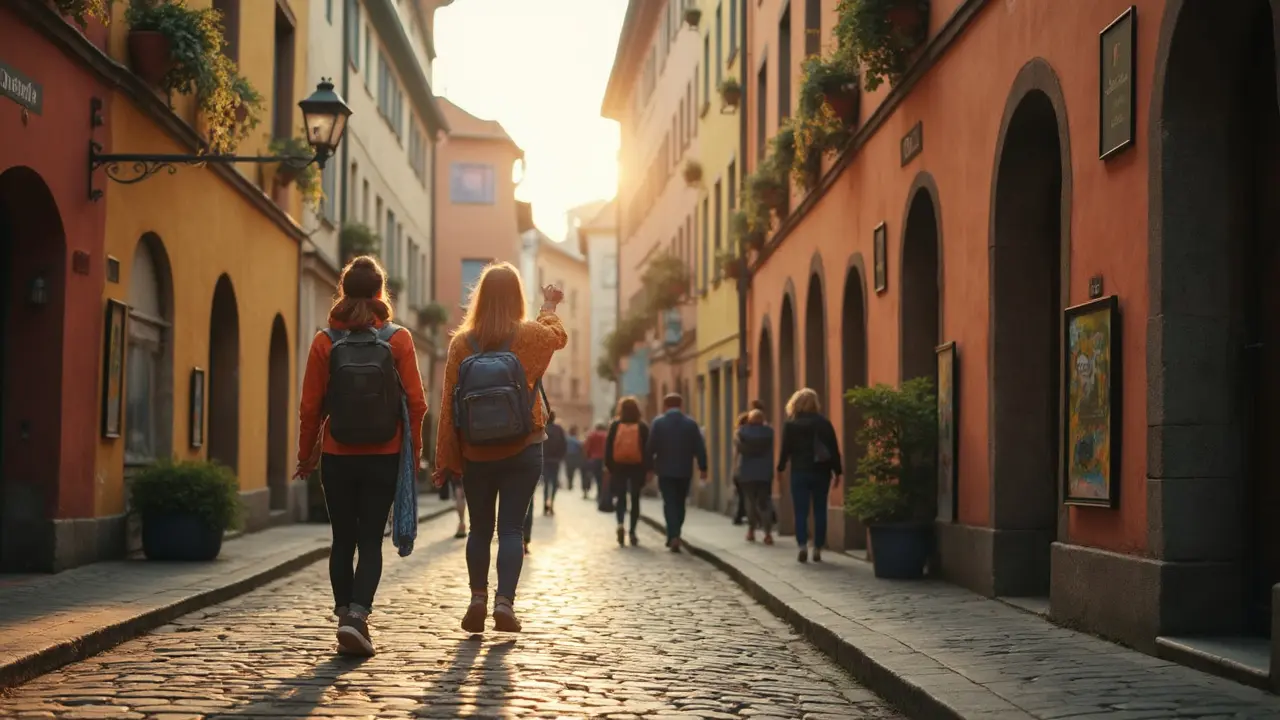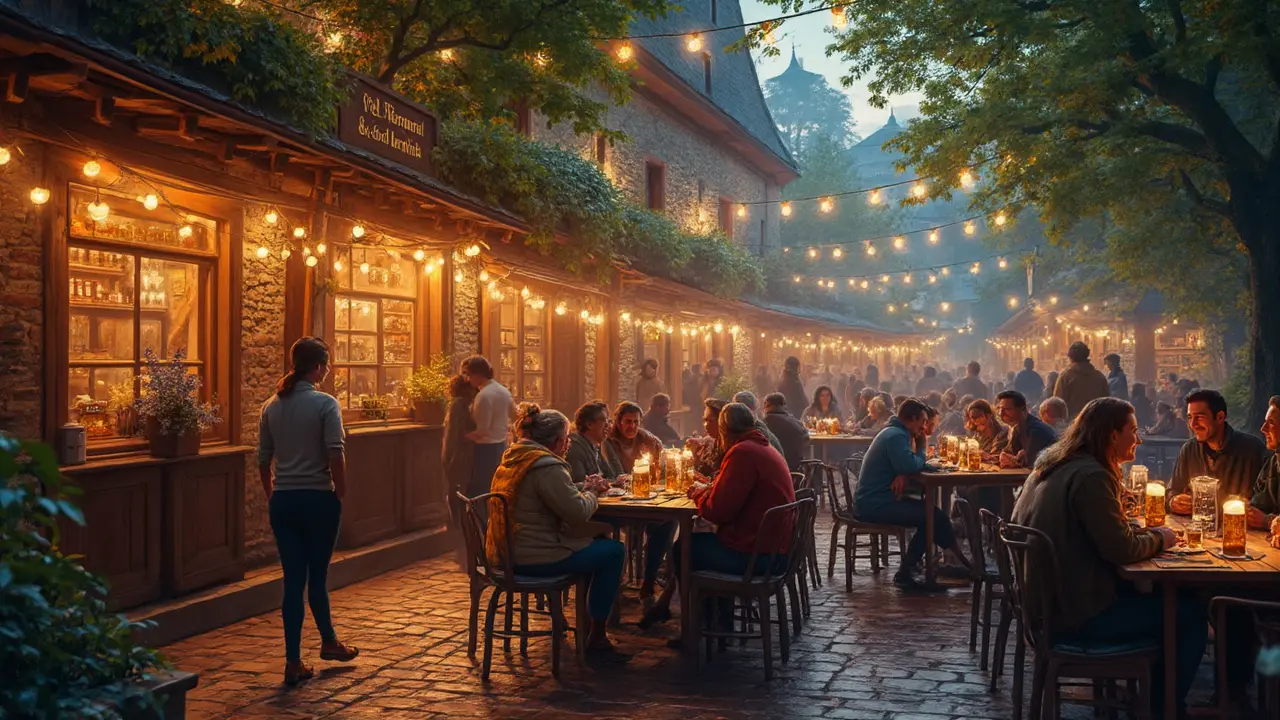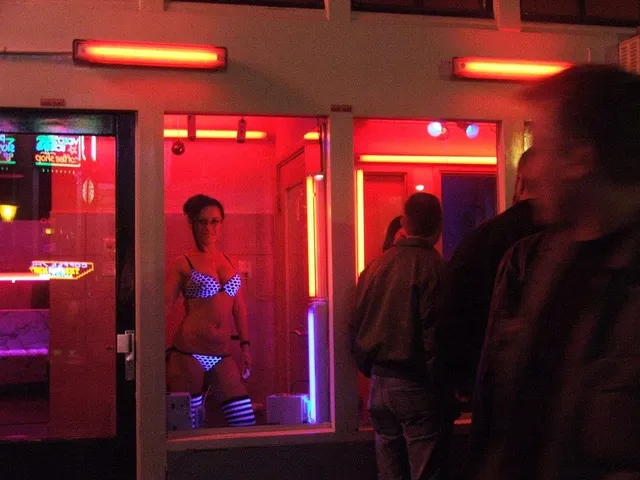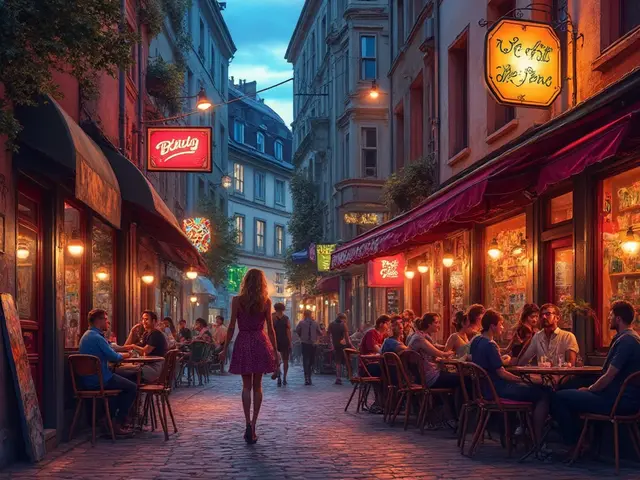Munich with Anny Aurora: Exploring the Heart of Bavaria

- Maximilian Von Stauffenberg
- 31 May 2025
- 0 Comments
You come to Munich for the beer and old buildings, right? But if you had Anny Aurora as your guide, you’d see that this place is a whole lot more than beer halls and castles. She knows the chill hangouts where locals actually spend their nights, the sketchy kebab shop that weirdly has the best falafel in town, and which lederhosen store isn’t trying to rip off tourists.
If you think Marienplatz is overrated during peak hours, you’re right—Anny skips it and hits up hidden coffee shops around Viktualienmarkt. The less touristy spots have better vibes and cheaper prices. She always checks if there’s an impromptu street performance or weekend flea market; those are goldmines for quirky finds and people watching. Want to save cash? Munich’s public bikes are way faster than waiting for a cab—plus, you see a lot more of the real city from the bike lanes than squished into a tram with tour groups.
This is the kind of info you wish your travel app actually gave you. Hands-on, up to date, and with the bonus of Anny’s no-nonsense opinions about what’s a must-do and what’s just hype.
- Anny Aurora’s Favorite Local Hangouts
- Food Stops You Can’t Miss in Munich
- Culture and Art Off the Beaten Path
- Smart Travel Tips for Munich Visitors
Anny Aurora’s Favorite Local Hangouts
Everyone knows the big Munich tourist spots, but Anny Aurora’s go-to places give you a different vibe. She skips loud tourist traps and heads straight to chill spots where you can actually hang out and get a feel for the city.
First on her list: the Glockenbachviertel district. Locals love it, and Anny says the night scene here is no joke. From small cocktail bars like Munich’s Die Registratur Bar to friendly LGBT hangouts around Müllerstraße, there’s always life but never that annoying cruise-ship crowd. She also raves about the backyard beer garden at Gans Woanders—built inside a quirky old house, it’s perfect on warm evenings. Expect fairy lights, homemade cakes, and board games lying around for anyone to use.
When she wants to chill after work or between shoots, Anny heads to the Isar riverbanks. In summer, most locals just bring a blanket, some snacks, and whatever drinks they want. No need to pay bar prices when the riverside sunset is free. If you like something more active, she says Flaucher Park is the spot to rent a grill, meet up for volleyball, or even take a dip when it’s hot (the brave locals swim, no joke).
If you want a morning with fewer crowds, Anny suggests French breakfast at Café Frischhut. It’s famous for Schmalznudeln—a Bavarian-style donut that sells out every weekend. She swears by their coffee before hitting the Saturday flea market at Riem, where she finds thrift-store steals and weird retro stuff from the '80s.
Here’s a breakdown of the hangouts and what you get:
| Hangout | What’s Cool | Best Time to Go | Price Range (EUR) |
|---|---|---|---|
| Glockenbachviertel | Bars, LGBT scene, street festivals | Evenings, weekends | 8-15 for drinks |
| Gans Woanders | Quirky garden, homemade food | Late afternoon, evenings | 5-12 for snacks/drinks |
| Isar riverbanks | Picnics, casual meetups, swimming | Sunny afternoons | Free (BYO food & drink) |
| Café Frischhut | Best Bavarian donuts, good coffee | Early mornings | 3-7 for breakfast |
| Riem Flea Market | Massive bargains, vintage finds | Saturdays | Depends what you buy |
The trick is to go a bit early or on weekdays when things are quieter. Munich locals like these hangouts because they’re low-key and easy to reach by bike or tram. Anny skips anything that feels staged—she wants places where people talk, laugh, and enjoy Munich the way real folks do. Bring some cash and an open mind: you’ll leave with new spots on your must-return list.
Food Stops You Can’t Miss in Munich
If you’re hungry in Munich and want the real deal, a few spots should be on your list. Anny Aurora swears by these places, and local regulars would probably nod along.
For something classic, grab a table at Hofbräuhaus. It gets crowded, but nothing screams Munich more than a salty pretzel, a slab of pork roast, and a stein of beer. Even locals go here for special occasions. Duck in on a weekday at lunch if you want a less touristy vibe.
If you’re more into the street food scene, hit up Viktualienmarkt. This open-air market in the middle of the city has food stalls selling everything from Bavarian sausages to vegan currywurst. Do yourself a favor and try Leberkässemmel—a warm meatloaf sandwich that sounds weird but totally works when you’re on the go.
Bored of pretzels and brats? Go for a Döner kebab at Mustafa’s Gemüse Kebap on Gabelsbergerstraße. Some say Munich’s döners beat even big Berlin shops. Don’t be freaked by the line; it moves fast and is worth the wait when you bite into fresh bread, crispy veggies, and spicy sauce.
For dessert lovers, no trip is complete without a stop at Rischart’s bakery. The apple strudel and plum cake have legendary status, and the place is right on Marienplatz if you’re already nearby snapping photos.
- Best time to visit Viktualienmarkt: Before noon for the freshest food.
- If you have allergies or dietary needs, ask vendors. Most places are used to tourists and will help you out.
- Craving a late-night meal? Head to Bergwolf near Sendlinger Tor for currywurst and fries after a Saturday out.
So, skip the chain restaurants. Munich’s food scene is about trying something old school, something international, and always ending with a pastry or three.

Culture and Art Off the Beaten Path
You probably know Munich for its Oktoberfest, but the city’s art and culture spaces are just as wild, if you know where to look. Forget the crowded Alte Pinakothek for a day. If you tag along with Anny, she’ll show you fringe galleries and low-key spots that even some locals miss.
First off, you’ve got to check out the Munich underground art galleries. Places like Kunstlabor 2 fill up old buildings with murals, installations you’re actually allowed to touch, and events where you can chat with artists over a beer. Permanent exhibitions at MUCA (Museum of Urban and Contemporary Art) bring in massive street art pieces—Banksy’s work has even swung through here.
On the cultural side, Gasteig is famous for concerts, but Anny prefers smaller, more unpredictable venues. You’ll want to try out Import Export, a community hub that’s heavy on experimental music, indie film nights, and popup performances. They’ve got events nearly every week, and the crowd is friendly. If you’re into weird or niche movies, Werkstattkino is a tiny, hidden basement cinema showing world cinema, cult films, and offbeat festivals. Expect sofas instead of stiff theater seats.
- Kunstlabor 2: Rotating exhibitions, street art workshops.
- MUCA: World-class street art, affordable entry (about €9 for adults).
- Import Export: Local music, open mic nights, community spirit.
- Werkstattkino: Alternative films, super cozy vibe.
Museums and spots like these often run offbeat events, like printmaking workshops or street art walks. Check their Instagram before you visit—opening hours and shows change fast.
Want to size up Munich’s cultural scene at a glance? Have a peek at this:
| Venue | Type | Average Entry Fee | Best for |
|---|---|---|---|
| Kunstlabor 2 | Experimental Art Gallery | €8 | Street Art, Interactive Installations |
| MUCA | Urban/Contemporary Art Museum | €9 | International Street Artists |
| Import Export | Community Venue | Usually Free/Donation | Live Music, Local Scene |
| Werkstattkino | Indie Cinema | €5 | World, Classic, and Cult Films |
Staying plugged in to Munich’s lesser-known culture means you’ll miss the tourist crowds and actually experience what’s new and exciting in the city. Most of these venues are within walking distance of public transport, so hopping between them is a breeze. Plus, drinks and snacks at these places go easy on your wallet—more money left for late-night currywurst.
Smart Travel Tips for Munich Visitors
Getting around Munich is way easier than most people expect. If you land at the airport, skip the cab line and take the S-Bahn (S1 or S8). It costs less than €13 and takes you right into the city in about 40 minutes. A group ticket can save you more money if you’re not traveling solo.
Munich’s public transport is famous for being clean and safe. Grab a “Tageskarte” (day ticket)—it covers U-Bahn, S-Bahn, trams, and buses all day. You don’t have to worry about zones if you’re staying within the main city, but do double-check if you’re going out to Dachau or Allianz Arena. And always remember to validate your paper ticket before you start your ride—ticket checks are real, and fines are steep (currently €60).
Locals love bikes. If you’re up for pedaling, check out the city’s bike-sharing schemes like MVG Rad. The first 30 minutes for each ride are super cheap and most of the city is flat, so you won’t get too sweaty.
- Most shops in Munich don’t accept credit cards. Cash is king, especially in small places and open markets. ATMs are everywhere, but watch out for fees.
- Don’t ignore Sundays. Stores close, but museums and beer gardens are open. Plan shopping or errands on other days.
- Tap water is safe—don’t waste money on bottled water unless you want sparkling.
- At busy restaurants, expect to share tables. It’s normal to sit next to strangers and chat.
| Item | Average Price (€) |
|---|---|
| Standard U-Bahn Ticket | 3.70 |
| Day Ticket (City Zone) | 9.30 |
| Pretzel at Bakery | 1.40 |
| 1L Beer at Beer Garden | 10.50 |
| Basic Restaurant Meal | 14.00 |
Wi-Fi can be patchy in public spaces. Bigger cafés usually offer decent free Wi-Fi, and there are free city hotspots in central squares. Cell service is good everywhere except deep inside old buildings.
If you want to hit the touristy spots like Nymphenburg Palace, get there early or book online to dodge crowds. For relaxation, the Englischer Garten is massive and free, but locals love the Isar riverbanks just as much for sunbathing or grilling in summer.



